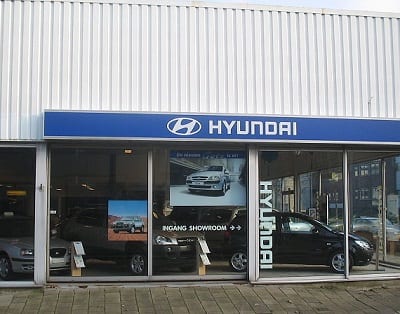Hyundai will not give up on hydrogen fuel cells
July 1, 2015Hyundai misses its sales target for its fuel cell vehicle, but will not give up
South Korean automaker Hyundai has had trouble selling its hydrogen fuel cell vehicle, the ix35, but the company has no plans to abandon fuel cells completely. Earlier this month, Hyundai announced that it has missed its sales goals for its fuel cell vehicle by a significant margin. The automaker had a goal of selling 1,000 units of its fuel cell vehicle in Europe and California, but has only managed to move approximately 250 of these vehicles in these markets.
Hydrogen fuel cells continue to be a difficult issue for automakers
Hydrogen fuel cells have managed to attract a significant degree of support from the auto industry, but consumers are not showing as much interest in these energy systems as automakers are. These energy systems consume hydrogen and produce electrical power. The only byproduct of this process is oxygen and water vapor, making fuel cell vehicles environmentally friendly. The problem with fuel cells, however, is that they are notoriously expensive. Their high cost makes vehicles that use these energy systems somewhat unattractive to consumers.
Cost of fuel cells makes them unattractive to consumers
 One of the challenges that automakers face with fuel cells is making their vehicles affordable to consumers. Toyota, another company that has become interested in hydrogen fuel cells, has managed to make its own fuel cell vehicle, the Mirai, somewhat in line with the cost of other vehicles. Several automakers have begun working together in order to reduce the cost of fuel cell technology, thereby making these energy systems more economical.
One of the challenges that automakers face with fuel cells is making their vehicles affordable to consumers. Toyota, another company that has become interested in hydrogen fuel cells, has managed to make its own fuel cell vehicle, the Mirai, somewhat in line with the cost of other vehicles. Several automakers have begun working together in order to reduce the cost of fuel cell technology, thereby making these energy systems more economical.
Fuel cell vehicles may have more promise than other electric vehicles
Hyundai believes that fuel cell vehicles represent a major opportunity for the auto industry. The automaker suggests that fuel cell vehicles are more promising than conventional electric vehicles because of their design flexibility and the fact that they can be fueled quickly. The high cost of these vehicles, as well as a the lack of a comprehensive hydrogen fuel infrastructure, may make it a struggle for fuel cell vehicles to find traction among consumers.

 With over 15 years of reporting hydrogen news, we are your premier source for the latest updates and insights in hydrogen and renewable energy.
With over 15 years of reporting hydrogen news, we are your premier source for the latest updates and insights in hydrogen and renewable energy.